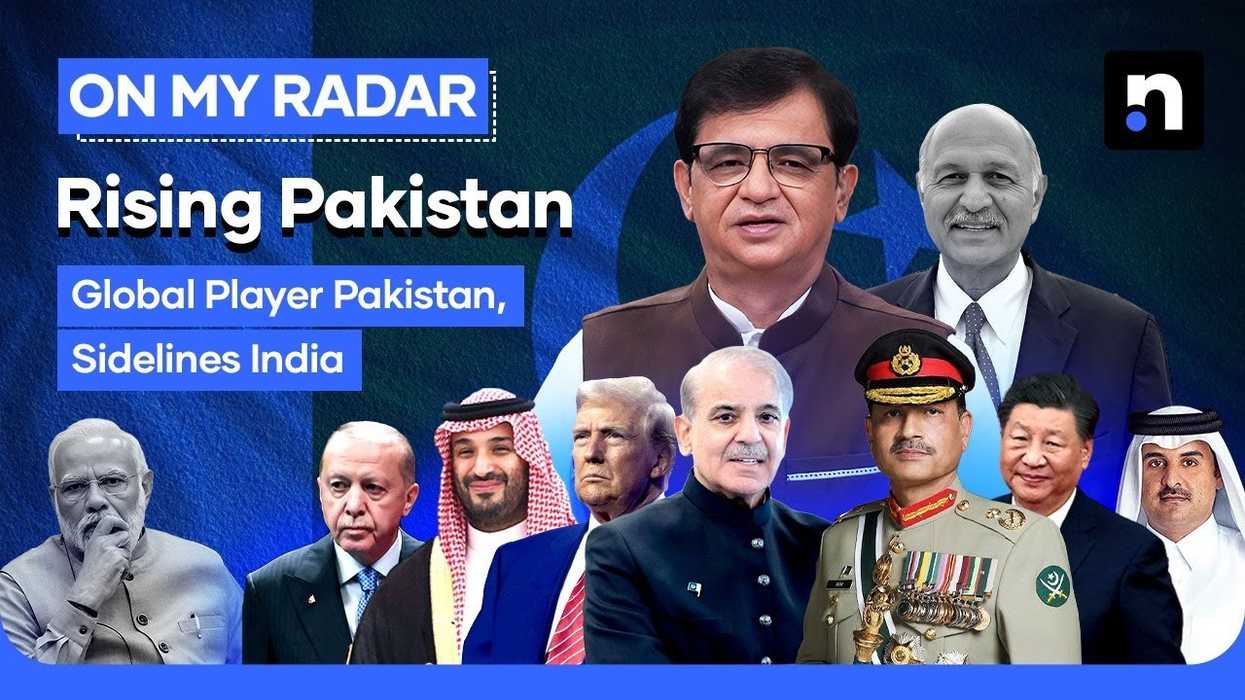Pakistan’s prestige rises as Saudi defense pact shifts global dynamics
Kamran Khan says Pakistan is entering a shining era as Saudi defense pact boosts its global prestige
News Desk
The News Desk provides timely and factual coverage of national and international events, with an emphasis on accuracy and clarity.
Pakistan’s global influence is surging as shifting geopolitics place the country at the center of strategic alignments, Kamran Khan said in his latest vlog.
Khan described the moment as a “shining era” in Pakistan’s political history, with the nation commanding unprecedented attention from the United States, China, Saudi Arabia, Qatar, Turkey, Egypt, Iran, and South Asia.
He argued that India, by contrast, is increasingly sidelined. “India’s diplomatic isolation is deepening, and in many respects it has been pushed aside,” Khan said.
Strategic pact with Saudi Arabia
Much of the new momentum stems from the recently announced strategic mutual defense agreement between Pakistan and Saudi Arabia. The pact, Khan explained, binds the two nations to treat an attack on either as an attack on both.
International media outlets have given the deal extensive coverage, calling it a landmark development in Middle Eastern defense politics. Khan said the agreement opens the door for other Gulf Cooperation Council members — including the UAE, Qatar, Kuwait, and Bahrain — to fall under Pakistan’s “defense umbrella.”
“This development is reshaping Pakistan’s space in the Middle East,” Khan said, noting that for the first time a nuclear power unwilling to recognize Israel is now a defense player in the region.
Parallel diplomacy in Riyadh and Beijing
The timing, Khan emphasized, underscores Pakistan’s rising profile. Prime Minister Shehbaz Sharif signed the pact in Riyadh after two visits to Qatar — one to express solidarity and another to attend an Arab-Islamic summit in Doha.
Simultaneously, President Asif Ali Zardari was in Beijing, holding meetings with China’s civil and military leadership. Zardari toured an aircraft complex where J-10, JF-17, and J-20 stealth fighter jets are built, becoming the first foreign head of state to visit the facility.
“This twin-track diplomacy in Riyadh and Beijing has rattled Indian media,” Khan said, adding that Indian coverage reflected a “funereal mood.”
Shifts in Afghanistan, Iran, and beyond
Khan also pointed to fast-changing dynamics in South and Central Asia. President Donald Trump, he said, wants to bring Afghanistan’s Bagram Air Base back under U.S. control. The Financial Times reported that the Taliban may leverage such talks to demand investment opportunities.
Meanwhile, Washington has revoked India’s sanctions waiver on Iran’s Chabahar Port, jeopardizing New Delhi’s access to Central Asia without relying on Pakistan.
In Europe, EU foreign policy chief Kaja Kallas warned that India’s purchase of Russian oil and participation in joint military exercises with Moscow could hinder closer ties with the bloc.
“These developments,” Khan said, “make Pakistan’s geostrategic location even more critical, while India is left staring helplessly.”
Regional upheavals undermine India
Khan noted that India has lost pro-New Delhi governments in three neighboring countries — Bangladesh, Sri Lanka, and Nepal — due to youth-led uprisings. Bangladesh’s Sheikh Hasina’s ouster, Nepal’s socialist-inspired youth movement, and Sri Lanka’s upheaval have eroded India’s influence.
In this context, Khan said, Pakistan’s new defense pact with Saudi Arabia represents the first “new normal” in the Muslim world, amplifying India’s isolation.
Wider acceptance and opportunities
Egypt’s foreign minister, Badr Abdelatty, congratulated Pakistan’s foreign minister Ishaq Dar by phone, calling the pact a “milestone” in regional defense partnership.
Khan added that Saudi Arabia’s steadfast support of Pakistan through difficult times is well-documented. But for the first time, Pakistan stands on equal — or perhaps stronger — footing.
“The real success will be when Pakistan transforms this defense partnership into an economic game changer,” Khan said. “This must go beyond slogans to become a genuine economic opportunity.”








Comments
See what people are discussing